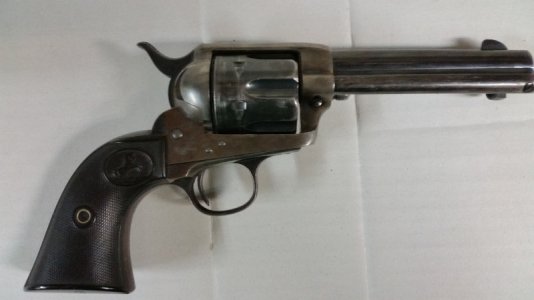Grinder
Active VIP Member
Hi all I will be inheriting several guns. Mostly long guns with no issue. The problem is there are 3 handguns. I have my pal for restricted non restricted licence so 2 are ok. One is the problem its a 1904 Colt saa 32 cal. It was grandfathered to my mother from when my uncle passed with great hassle from rcmp. Picture 60 year old mother getting pal just so she can keep her family inheritance. I couldnt because she was the sole inheriter. Acording to the rcmp it was to be surendred to be destroyed because of the calibre. Still have the letter from rcmp. We managed to keep it through the grandfathered thing. Now shes getting on and I have been told diffrent things like it can only be grandfathered once so it has to be either destroyed or sold to an appropriately licenced collector in canada when she passes. Who will lowball the crap out of it because he knows we are in a jam. How can I keep this gun in the family? Do I get a prohib licence and what do I need to do to get it. It is a beautiful gun with documents from Colt as authentic, sold from a hardware store in Manitoba in 1904 to my great uncle. His job was to take you to the section of land you were given in Sask when you got off the boat. What do I do ? Thanks






